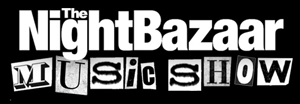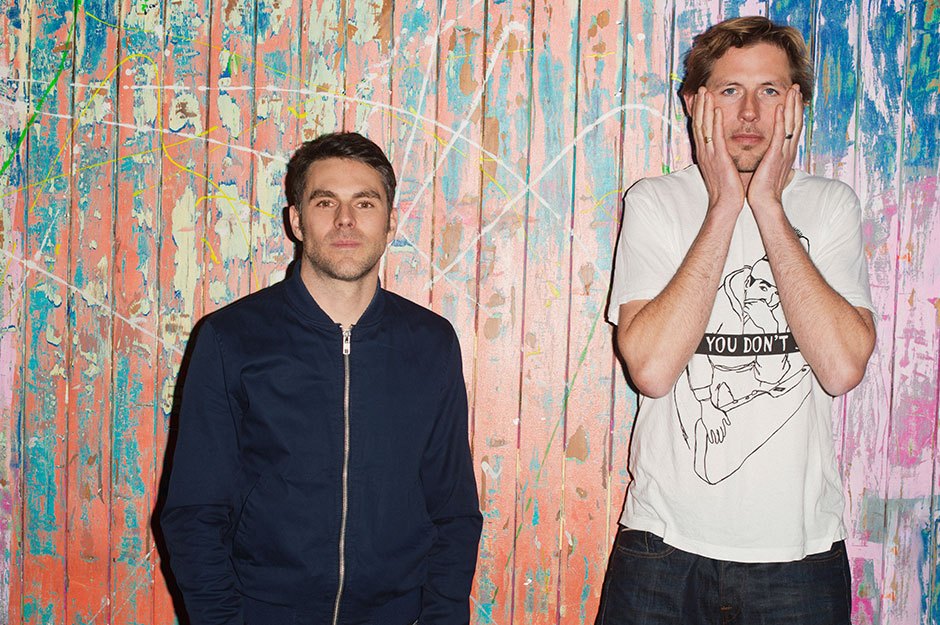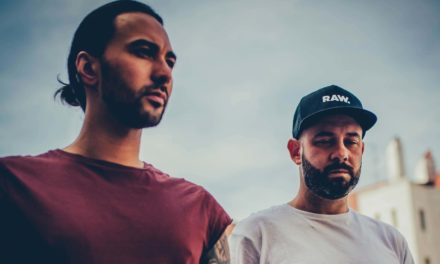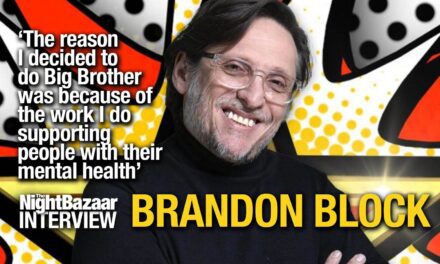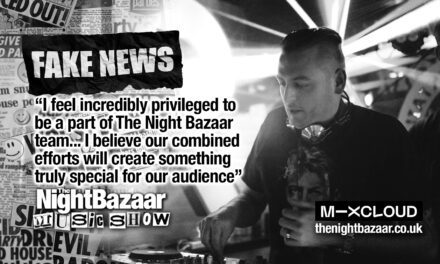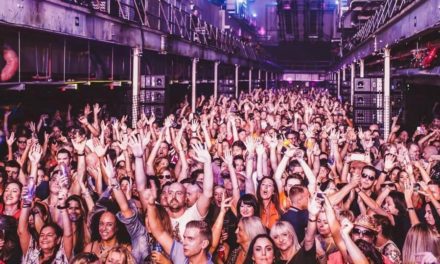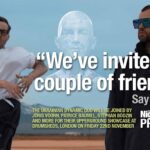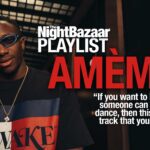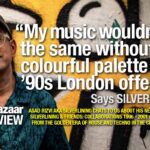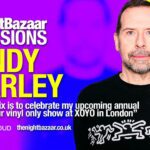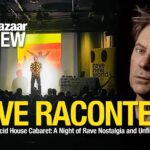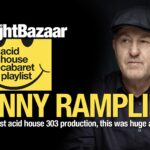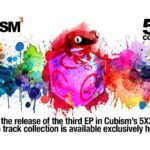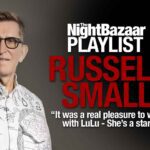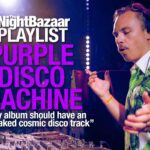GROOVE Armada have provided some of dance music’s most memorable moments since the early 90’s, music that defined a generation from ‘I See You Baby’ to the Grammy nominated ‘Superstylin’.
Andy Cato and Tom Findlay are firmly installed in electronic music’s hall of fame.
In 2010 they ended the era of performing with a live band on big stages and releasing their music on major labels and returned to their roots and the music that inspired them in the first place, putting out some great music on a variety labels such as Hypercolour and Hot Creations in the process.
The culmination of this new exciting era can be found in their new Little Black Book album for Moda Black which has just been released.
Part album, part remix album, part compilation the album features a superb 77 minute journey through some of the duo’s finest productions and remixes of the last few years peppered with exclusive brand new material. It’s a very current house sound infused with the underground influences that inspired the band in the first place, yet it incorporates those special moments that make Groove Armada sound out from the pack.
The release also nods to the future. Some of today’s brightest talents were hand picked to remix some Groove Armada classics with the likes of Huxley, Joris Voorn, Kölsch, wAFF and many others stepping up to reinterpret some of GA’s most timeless music.
We caught up with Andy Cato from the band late last year to find out more about how the album came about and the changing landscape of dance music in this interview which was originally published on June 1, 2015.
Little Black Book is presented as a mixed set of your own productions.
Was this approached as a DJ set or a live performance?
We know with you guys calling time on the live shows at Brixton back in 2010 that you have been getting back to basics after the massive success you have had over the years.
Yes in 2010 we brought the live band, big stage, major label era to a close. Since then we’ve gone back to the free-party house sound where we began. In the DJ booth, we blend this with various tricks that come with 15 years of big gig experience and the result can be electric.
The new Little Black Book album is just an extension of the house music sound we’ve been releasing and remixing on labels from Hypercolour to Hot Creations these last few years. Originally the Black Book was going to be a mix of the best of these releases. But then we got on a roll in the studio and ended up with a mainly all new mix album. When it came to doing the mix itself, we turned it up, turned the lights off, and thought of nightclubs.
The sound is a very current and underground and there are still those special moments that you guys create that leave a real mark on the audience and which have the potential to become the next big GA anthem. Your remix of Drew Hill’s ‘Talk To Me’ for example.
Do you ever feel the pressure to deliver another ‘Superstylin” or ‘I See You Baby’?
What are your favourite tracks on the album?
We’ve never tried to copy anything that’s gone before. Which is why the albums go from At The River to Superstlyin’ via a Neneh Cherry ballad or Candi Staton in afro balearic mode with Tony Allen on the drums (Paris). We’ve only ever made what we’re feeling at the time.
There’s a thread through all the GA stuff of whatever style or tempo, where the grooves are broken by the kind of moments your talking about. They’re a combination of a love of all styles being funnelled into dance music with a lot of hours spent on dancefloors. We’ve lived it and normally can feel what needs to happen next.
Can you tell us a bit about your relationship with Jaymo and Andy George’s Moda Black, the label the album is released on? Why did you decide to put the album out with them?
When we ended up with an albums worth of new material, a lot of people said you need to sign to a major, get the band back together, do all of that. We don’t want to do that. We want to play and make house music.
Moda Black was on the radar. We liked their idea of a Black Book album which combines where we’re at with a roundup of the archives and the space for some text to tell the story of the last 20 years and how we ended up here.
The second disc on the album contains an array of remixes from a load of great talent including Jaymo and Andy, Kölsch, Joris Voorn among many others. Did you pick the talent here yourselves? It really is a great selection of interpretations of your work. Do you each have a favourite one?
We went backwards and forwards with Moda to pick the remixers. It’s nice that there’s a lot of good feeling towards us from the new generation and most people we asked and who were around said yes.
The design of the packaging for the Little Black Book album makes it a desirable piece of dance music memorabilia. How involved were you in the design process?
We were fully involved. Not least in going through cardboard boxes of photos and flyers going back 20 years and pulling together a selection that gives a flavour of that time. I also spent a while trying to reduce a potted personal history of GA into a couple of pages.
The experiences you write about in the book make for an interesting read! It’s been a hell of a ride for you both. Could you ever have imagined when you guys started out that Groove Armada would become so ingrained into the fabric of dance culture in the UK and beyond?
We never imagined that. Never even thought about that.
We came from a moment in time when dance music was marquees on the South Downs.It was counter culture. It was something you lived, not something you got paid for.
That ethos has always stayed with us, which is why you’d always find us playing at a house party somewhere a couple of hours after coming off stage playing to 100,000 people.
It’s why it’s always been good to get back to places like the Space Terrace, Sankeys or fabric even when we were being driven around LA’s great and good in over-sized limos.
Now you often hear dance music people talking about ‘building their brand’ or discussing a marketing opportunity that came from a chance encounter in the gym. It’s a different world.
We have recently been highlighting the challenges the night time industries face in club land with a lot of club closures and the constant threat which hangs over many. With dance music being so massive across the globe now, how healthy do your think the scene in is the UK both with regard to festivals and clubs?
From a London perspective, the night club scene has been decimated since we started. They’ve all become luxury flats advertised by smiling couples in the sunday papers. Nevertheless, what’s nice is that this has forced a return to a more DIY ethos, people putting on their own parties. You can move around London on a weekend and walk for free or almost free into any number of places with tasty line ups.
That said, we need to keep the few big clubs that are left as they offer a different experience. Fabric main room is not a vibe you’re going to get in your mate’s basement.
Having founded Love Box back in 2002 do you think there are perhaps too many festivals popping up in 2015? There has been a huge increase in recent years. Is it sustainable? Harvey Goldsmith recently said that there are not enough modern bands who can be headline acts for music festivals and that the era of the festival is on the slide. Do you think this is true of dance music events or is it just festivals like Glastonbury or Reading that may have the issues he describes?
I think it’ll change the type of festival. There’s a total lack of new dance music bands with enough tunes and draw to close big festival stages. As a result, we’re playing more festivals where there’s no big stage.
Just a lot of smaller tents, DJ driven with a couple of bands here and there. Basically a paying and policed version of Castlemorton in ’92.
Groove Armada’s Little Black Book is out now on Moda Black.

